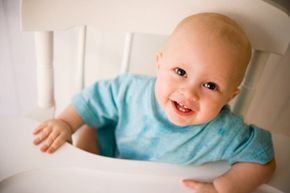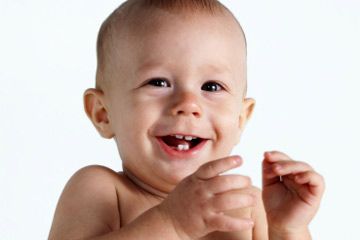Babies do all sorts of things in their sleep. They cry out, move around in their cribs and wave their little arms while dreaming.
More than one-third of children have another nighttime habit -- they grind their teeth (a condition known as bruxism) [source: Journal of Dentistry for Children]. Sometimes kids also grind their teeth during the day.
Advertisement
Experts don't know exactly why babies grind their teeth. It may be an attempt to soothe their sore gums during teething, or to ease the discomfort of an earache. Babies may also grind because their top and bottom teeth aren't properly aligned. Some babies grind as they try to get a feel for their new teeth. Allergies may also be to blame in some infants.
In older children and adults, bruxism can be a sign of anger or worry. Trouble in school or a big change at home -- such as a move -- can make kids anxious enough to clench their teeth. Sometimes tooth grinding is a symptom of a medical condition, such as cerebral palsy. Children who drool or sleepwalk are more likely to also have bruxism [source: Journal of Dentistry for Children].
If your baby grinds his teeth once in a while, it's not a problem. But if the tooth grinding is constant and long-term, it could eventually lead to all kinds of problems, including tooth damage, headaches and jaw pain -- a condition called temporomandibular joint disorder, or TMJ. Bruxism can interrupt your child's slumber enough to cause daytime sleepiness and crankiness due to lack of rest.
Usually bruxism goes away on its own as your child gets older and all of his adult teeth grow in. If the problem doesn't stop, talk to your child's dentist about ways to treat it. You may try calming your child before bed by reading him a story or drawing a warm bath. If your little one's emerging teeth are sore, give a cool ring to chew on instead of his or her teeth. Treat ear infections with antibiotics, and give your child acetaminophen or ibuprofen to relieve the pain. For older children, the dentist may recommend a mouth guard or splint that goes over the teeth to prevent grinding.
At each appointment, have the dentist check to make sure the grinding isn't causing any damage to your baby's teeth.
For more information on oral health, sink your teeth into the links on the next page.
Advertisement

